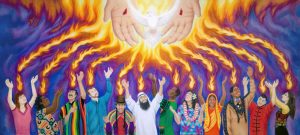
Shownotes
Wisdom-Trek / Creating a Legacy
Welcome to Day 1156 of our Wisdom-Trek, and thank you for joining me.
I am Guthrie Chamberlain, Your Guide to Wisdom
Supernatural Infiltration – Worldview Wednesday

Wisdom – the final frontier to true knowledge. Welcome to Wisdom-Trek where our mission is to create a legacy of wisdom, to seek out discernment and insights, and to boldly grow where few have chosen to grow before.
Hello, my friend, I am Guthrie Chamberlain, your captain on our journey to increase Wisdom and create a living legacy. Thank you for joining us today as we explore wisdom on our 2nd millennium of podcasts. This is Day 1156 of our trek, and it is Worldview Wednesday. Creating a Biblical Worldview is important to have a proper perspective on today’s current events. To establish a Biblical Worldview, you must also have a proper understanding of God and His Word.
On our Worldview Wednesday episodes we are in a series in which we are covering another detailed review of a book from one of today’s most prominent Hebrew scholars Dr. Micheal S. Heiser. We are taking a deep dive and will share Dr. Heiser’s insights into the question, which is also the title of his book “What Does God Want?”
Supernatural Infiltration

Remember in last week’s lesson what happened in Acts 2 about the coming of the Spirit. The arrival of God’s Spirit was the crucial element of a new covenant—a new set of promises God was giving to humanity. Many Christians don’t realize that this also meant God was launching a spiritual war to reclaim not only Jews who had rejected Jesus but also Gentiles, people from the nations he had rejected back at the Tower of Babel. God was in pursuit of his family, and it didn’t matter where his children lived. He wanted them and would find them.
The passage I read last week in Acts 2 tells us the Spirit came with wind and fire. Let me again read Acts 2:2-3, “Suddenly, there was a sound from heaven like the roaring of a mighty windstorm, and it filled the house where they were sitting. Then, what looked like flames or tongues of fire appeared and settled on each of them.”
Fire and “burning smoke” were common elements in visions of God’s presence in the Old Testament (Exodus [13:21]-22; Ezekiel 1:4, 13, 27). God at times, came in a “whirlwind” (Isaiah 6:4, 6; Ezekiel 1:4; Job 38:1; 40:6). Jews who heard Peter’s message and saw the coming of the Spirit with their own eyes knew the day of salvation had come.
Think about what happened in this scene. Three thousand Jews, living abroad in the nations where their ancestors had been scattered, had come to Jerusalem for a religious feast day. They witnessed the coming of the Spirit and heard about Jesus, the Messiah, and what he had done. They believed in Jesus. They became Christ followers. What do you suppose they did next? They went home.
Why does that matter? Because now the lost, divorced nations had three thousand evangelists planted in them. They were like secret agents, embedded in hostile territory held by other gods. They would be God’s initial means to multiply the size of his human family. They were the first wave. Their mission? The same one Jesus had given to his disciples: the Great Commission. Christians know the verses well as we find in Matthew 28:19-20, “Therefore, go and make disciples of all the nations, baptizing them in the name of the Father and the Son and the Holy Spirit. Teach these new disciples to obey all the commands I have given you. And be sure of this: I am with you always, even to the end of the age.”
But again, something is missed. That’s the Great Commission all right. But I skipped verse 18, the one that’s usually skipped when people talk about our mission to evangelize. Here’s the full statement of Jesus with verse 18 included.
Jesus came and told his disciples, “I have been given all authority in heaven and on earth. Therefore, go and make disciples of all the nations, baptizing them in the name of the Father and the Son and the Holy Spirit. Teach these new disciples to obey all the commands I have given you. And be sure of this: I am with you always, even to the end of the age.”

Did you catch that? Jesus has all authority in heaven and on earth. The authority in heaven part is pretty easy to understand. Jesus ascended into heaven and sat down at the right hand of God (Colossians 3:1; Hebrews 12:2). But what does the “on earth” part mean? This is easily missed. His ascension, which naturally had to follow his resurrection, marked the end of the authority of those who held power on the earth up to that point. Who was that? The fallen sons of God, appointed over the nations when God divorced them as we are told in Deuteronomy 32:8. Essentially Jesus was saying that these fallen sons of God had no business being here now.
The implication is that the resurrection and Jesus’ return to heaven meant that the authority of the rebel sons of God was now null and void. They no longer had legitimate dominion over the people in those nations. Salvation was not just for Israelites (Jews), even though the Messiah was a descendant of Abraham and David. Jesus was the Messiah for everyone, and rightful lord of every nation. The resurrection, ascension, and coming of the Spirit marked the beginning of the end for the fallen sons of God. They had lost their legitimacy.
This is why the New Testament associates the resurrection and ascension with the defeat of the supernatural powers of darkness. This is explained in Colossians 2:12-15, “For you were buried with Christ when you were baptized. And with him, you were raised to new life because you trusted the mighty power of God, who raised Christ from the dead. You were dead because of your sins and because your sinful nature was not yet cut away. Then God made you alive with Christ, for he forgave all our sins. He canceled the record of the charges against us and took it away by nailing it to the cross. In this way, he disarmed the spiritual rulers and authorities. He shamed them publicly by his victory over them on the cross.”
Recall from last week the “spiritual rulers and authorities” are terms Paul uses of the supernatural fallen sons of God who became the evil gods of the nations in Old Testament times (Romans [8:38]; 1 Corinthians [15:24]; Ephesians [1:21]; 2:2; [3:10]; [6:12]; Colossians [1:13]).
The “spiritual rulers and authorities” is a favorite expression of the apostle Paul to describe the defeated powers of darkness. After he rose from the dead, 1 Peter 3:22 tells us, “Now Christ has gone to heaven. He is seated in the place of honor next to God, and all the angels and authorities and powers accept his authority.”

Paul wants us to understand what that meant when he wrote Ephesians 1:19-21, “I also pray that you will understand the incredible greatness of God’s power for us who believe him. This is the same mighty power that raised Christ from the dead and seated him in the place of honor at God’s right hand in the heavenly realms. Now he is far above any ruler or authority or power or leader or anything else—not only in this world but also in the world to come.”
The world to come is described to us in 1 Corinthians 15:24, “After that the end will come, when he will turn the Kingdom over to God the Father, having destroyed every ruler and authority and power.”
Paul saw the resurrection and ascension as marking the beginning of the end for the fallen sons of God that had been allotted to the nations. It’s no surprise, then, that he also linked that thought with the salvation of Gentiles, the people of the forsaken nations. The resurrected Jesus and the Spirit would release the Gentiles from dark powers who enslaved and abused them (Psalm 82:2-5).
Recall that God had appeared to Abraham right after dividing the nations at Babel. He told Abraham that through him and his descendants, all those nations would one day be blessed. Paul, the apostle to the Gentiles, knew that promise well. He wrote that Jesus “had confirmed the promises” given to Abraham and his descendants “in order that the Gentiles might glorify God for his mercy” (Romans 15:8-9).
Paul wasn’t done there. He was fond of quoting the Old Testament to show that God never gave up on the Gentile nations. He had wanted them in his family all along. Paul knew that the Messiah, called the “root of Jesse” in the Old Testament (Jesse was King David’s father) as found in Romans 15:12, “The heir to David’s throne will come, and he will rule over the Gentiles. They will place their hope on him.” Paul knew that the forsaken nations would one day worship the true God (Psalm 117:1).
This program—a campaign of spiritual warfare—was launched when the Spirit came and 3,000 people believed in Jesus (Acts 2). Those new believers went back to their home countries. The gospel of Jesus infiltrated the nations under dominion of hostile supernatural powers. The Bible refers to this as the growth of the “kingdom of God.” As people turned from the corrupt, evil gods that could not offer them everlasting life and become members of God’s family, God’s kingdom grows. One kingdom diminishes; the other expands.
The kingdom of God is therefore already here in some sense…but not completely here in another. Not a moment goes by that God stops pursuing the children he loves and wants. His unseen hand is everywhere, in every circumstance, influencing and empowering his children to grow his human family. One day God’s plan will reach its peak. Everything will come full circle. The end of the story will be the one its Author had in mind all along.
That will conclude our lesson for this week from Dr. Heiser’s book “What Does God Want?” in our next Worldview Wednesday, we will learn that God’s plan is to be with His family forever. I believe you will find each Worldview Wednesday an interesting topic to consider as we build our Biblical worldview.
Tomorrow we will continue with our 3-minute humor nugget that will provide you with a bit of cheer and help you to lighten up and live a rich and satisfying life. So encourage your friends and family to join us and then come along with us tomorrow for another day of our Wisdom-Trek, Creating a Legacy.

If you would like to listen to any of our past 1155 treks or read the Wisdom Journal, they are available at Wisdom-Trek.com. I encourage you to subscribe to Wisdom-Trek on your favorite podcast player so that each day’s trek will be downloaded automatically.
Thank you for allowing me to be your guide, mentor, and most importantly, your friend as I serve you through the Wisdom-Trek podcast and journal.
As we take this trek together, let us always:
- Live Abundantly (Fully)
- Love Unconditionally
- Listen Intentionally
- Learn Continuously
- Lend to others Generously
- Lead with Integrity
- Leave a Living Legacy Each Day
I am Guthrie Chamberlain reminding you to Keep Moving Forward, Enjoy Your Journey, and Create a Great Day Everyday! See you tomorrow!